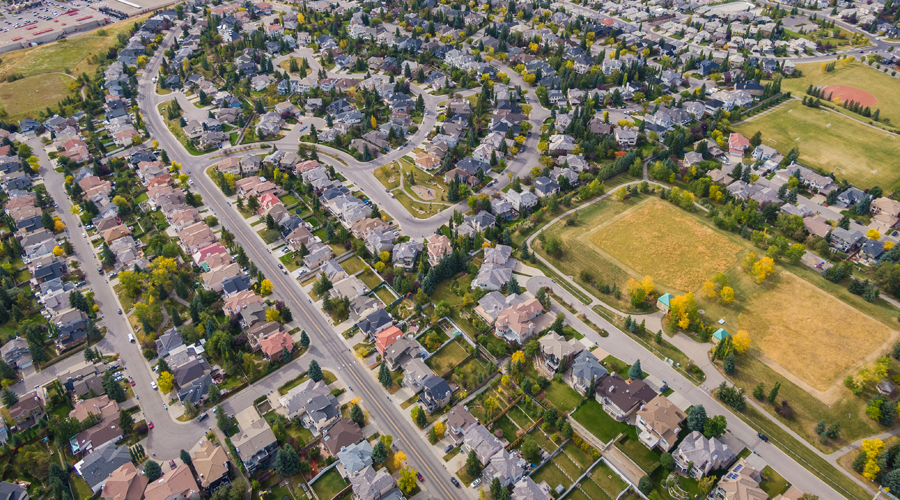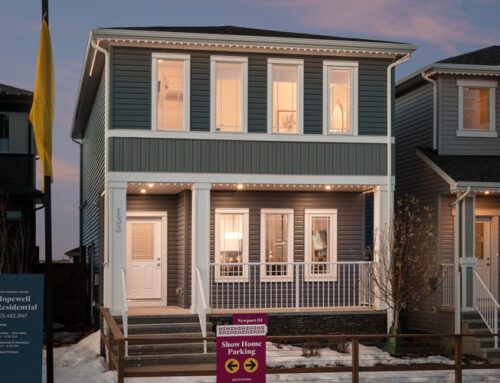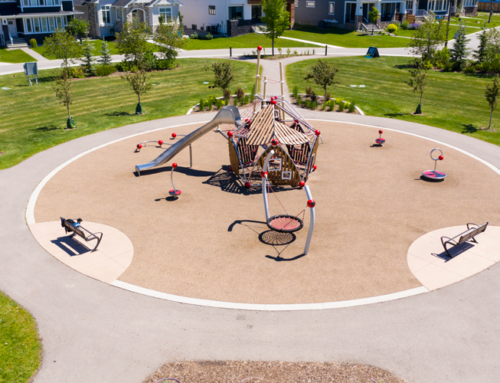
We’ve all read headlines like “a sharp correction is coming” and “the bubble is about to burst”, which strikes fear into many homeowners and welcome relief for anyone looking to break into the housing market for the first time.
The question on everyone’s mind is whether or not we’ll see a huge drop in housing prices in Calgary. While there is no certain answer, we can take a look at market trends to get an idea of what might happen. It’s important to remember that housing prices are impacted by many factors, including interest rates, the economy, and population growth.
Housing Price Trends in Canada for 2022
Let’s start by looking at Alberta’s housing market in a national context. At its peak, the price of the average Canadian home hit $816,720 in February, which is the highest level on record according to the Canadian Real Estate Association (CREA). They also reported that it was the second-busiest February ever for home selling, just behind the all-time high hit last year. When compared to recent home prices, the average home price has fallen by 23% in the span of the previous five months.
Why are we reaching such high house prices? The pandemic has had a surprising impact on Canada’s housing market. In March and April 2020, sales volumes and price growth slowed to a crawl as buyers reacted to the uncertainty by keeping their wallets closed. But in the almost two years since, the market has been on an absolute tear, with record-low interest rates and homebuyers seeking more space after being cooped up in a small house or condo while working from home.
In Vancouver and Toronto, average home prices were already sky-high before the pandemic. House prices peaked in the Greater Toronto Area (GTA) in February 2022 when the average price of a detached home was $1,797,203 and has since slid a whopping $722,449 (-24%) over the last five months. Metro Vancouver has seen a 10.3% year-over-year increase and 29% from two years ago but is starting to show signs of weakness with a 4.5% decrease from the all-time high of $1,264,700 in April 2022.
Increases in house prices haven’t been limited to major Canadian cities. The benchmark price of a home in Moncton, New Brunswick jumped by 82% between February 2020 and July 2022. British Columbia is currently the most expensive province in Canada to buy a home with Powell River and Vancouver Island leading the charge with increasing average home prices in July 2022 of 35% and 17% year-over-year, respectively. Across Canada markets like Halifax-Dartmouth increased by 70%, Victoria by 50%, and Hamilton-Burlington by 49% during the pandemic.
Meanwhile, Alberta’s two largest cities saw more modest growth with 25% increases in Calgary and 16% in Edmonton during the pandemic. Based on these relatively lower increases, a housing bubble doesn’t appear to have formed here, so there isn’t one to burst.
Outlook for House Prices in Alberta (& Calgary) for 2022
While some parts of Canada may experience extreme downward house price drops in the coming months, this isn’t expected to happen in Alberta. The average price in Calgary is still comparatively affordable. For example, during the peak in February, the benchmark house price in Calgary was just over $487,000 compared to more than $718,000 in Ottawa.
Going forward, our robust economic growth will fuel strong support for the housing market in Alberta. It’s expected that Alberta will likely lead the country in this regard in 2022. As a result of the growing demand for workers and our high quality of life, we have recently returned to being a net recipient of interprovincial migrants.
Our modest house price trend is also expected to continue. A recent Housing Market Outlook report from CMHC points out, “the Prairie provinces, led by Alberta, will likely see relatively strong (home) sales and starts levels and be stimulated by energy sector investments and higher energy and commodities prices. The growth in (house) prices is predicted to remain below the national average reflecting more balanced supply conditions than in other regions.”
While higher interest rates and economic uncertainty may have a slightly negative impact on home prices in Alberta, we should be able to avoid any serious damage. Other markets, however, may not be so lucky and could experience much more severe housing price drops.





